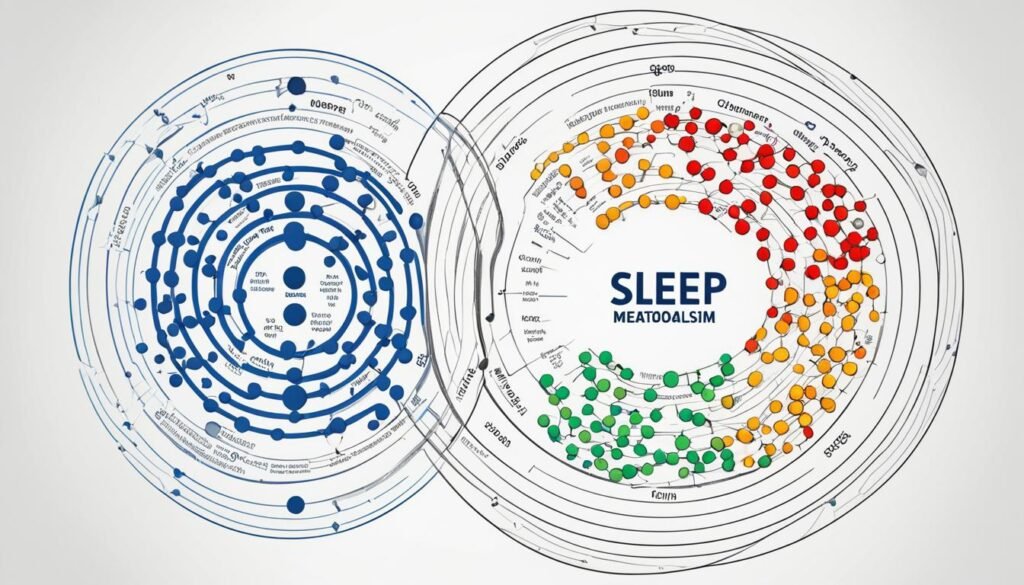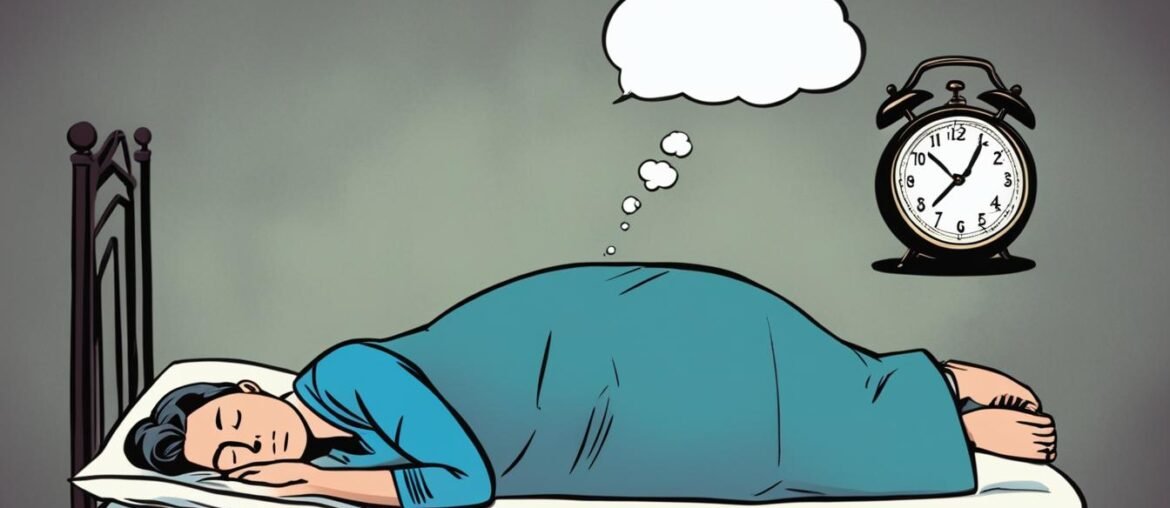When it comes to weight loss, we often focus on diet and exercise. But did you know that the amount of sleep you get can also play a crucial role? Research has shown that sleep quality and weight loss are closely linked, and getting enough restful sleep is essential for achieving and maintaining a healthy weight.
A lack of sleep, defined as less than 6-7 hours per night, has been associated with higher body mass index (BMI) and weight gain (check out my post on lack of sleep here). But how exactly does sleep affect weight loss? One key mechanism is through its impact on our hunger levels and ability to regulate food intake. Sleep deprivation increases hunger hormones and decreases feelings of fullness, leading to higher calorie consumption, especially from high-fat and high-sugar foods.
Not only does lack of sleep affect our appetite, but it also interferes with metabolism, appetite regulation, and impulse control. This can make it harder for us to make healthy food choices during the day. Additionally, poor sleep is often accompanied by late-night snacking, which can further disrupt our body’s resting metabolic rate.
Key Takeaways:
- Getting enough sleep is just as important for weight loss as diet and exercise.
- Short sleep duration (
- Lack of sleep increases hunger levels and decreases feelings of fullness.
- Poor sleep can lead to late-night snacking and disrupt metabolism.
- Getting good quality sleep is crucial for weight management.
The Link Between Sleep Duration and Weight Gain
Short sleep duration has been consistently associated with an increased risk of weight gain and obesity. Research has shown that adults who sleep less than 6-7 hours per night have a higher obesity risk compared to those who sleep longer. Similarly, short sleep duration is also linked to greater waist circumference, especially indicative of belly fat accumulation.
In children and adolescents, the relationship between sleep duration and obesity risk is also evident. Studies have found that insufficient sleep in this age group is associated with a higher likelihood of developing obesity. This is a concerning issue as childhood obesity can have long-term health implications.
Sleep duration plays a crucial role in regulating hunger hormone levels. Lack of sleep has been found to increase the levels of ghrelin, the hormone responsible for signaling hunger, and decrease the levels of leptin, the hormone responsible for signaling fullness. This hormone imbalance can result in increased appetite and calorie intake, which may contribute to weight gain.
Moreover, sleep deprivation can significantly impact stress hormone levels, such as cortisol. Elevated cortisol levels can promote weight gain, especially in the abdominal area known as visceral fat accumulation. This type of fat is associated with an increased risk of metabolic disorders and cardiovascular diseases.
| Sleep Duration | Obesity Risk |
|---|---|
| Less than 6 hours | Higher obesity risk |
| 6-7 hours | Lower obesity risk |
| More than 7 hours | Lower obesity risk |
Additionally, sleep disorders like sleep apnea can contribute to weight gain. Sleep apnea disrupts normal sleep patterns, leading to inadequate sleep duration and quality. The combination of poor sleep and weight gain can create a vicious cycle, as weight gain can worsen sleep apnea symptoms.
It is clear that sleep duration plays a significant role in weight gain and obesity risk. Establishing healthy sleep habits and ensuring an adequate sleep duration can be beneficial for weight management and overall well-being.
The Impact of Sleep on Appetite and Food Choices

Lack of sleep can have a significant impact on appetite regulation, leading to increased calorie intake and food cravings. When we don’t get enough sleep, our bodies undergo hormonal changes that disrupt the balance between hunger and fullness cues. This disruption can result in unhealthy food choices and contribute to weight gain.
Research has shown that sleep deprivation increases levels of ghrelin, the hormone responsible for stimulating appetite, while decreasing levels of leptin, the hormone that signals fullness. This hormonal imbalance can make us feel hungrier and less satisfied after eating, driving us to consume more calories than we actually need.
Moreover, lack of sleep can affect our food preferences and make us more susceptible to choosing high-calorie and high-carbohydrate foods. Sleep-deprived individuals often find themselves reaching for sugary snacks and fatty foods, as the brain’s reward centers become more responsive to these types of indulgent treats.
“Sleep deprivation can lead to decreased self-control and decision-making abilities, further contributing to poor food choices.”
Furthermore, sleep deprivation can impair our self-control and decision-making abilities, making it harder for us to resist unhealthy food choices. When we are sleep-deprived, we may feel more impulsive and less able to make rational decisions, leading us to opt for convenient, high-calorie options instead of nutritious meals.
To compensate for the lack of energy caused by sleep deprivation, people often turn to higher-calorie foods that provide quick bursts of energy. This can create a vicious cycle, as the extra calories consumed can contribute to weight gain, which further impairs sleep quality and perpetuates unhealthy eating habits.
| Sleep Deprived Individuals | Well-Rested Individuals | |
|---|---|---|
| Hunger Levels | Increased | Normal |
| Fullness Levels | Decreased | Normal |
| Food Preferences | High-calorie, high-carbohydrate foods | Balanced food choices |
| Self-Control | Impaired | Intact |
Table: Comparison of sleep deprived and well-rested individuals’ appetite and food choices.
The Role of Sleep Timing in Weight Management
The timing of sleep can have a significant impact on weight management. Late-night snacking, weight gain, sleep quality, and food intake before bed are all factors influenced by sleep timing.
Staying up later increases the window of time for eating, which can result in more opportunities for late-night snacking. This is especially true if it has been several hours since dinner. Late-night eating has been linked to weight gain, higher body mass index (BMI), and decreased fat oxidation, which can make weight loss more challenging.
Eating close to bedtime can disrupt sleep quality and contribute to sleep deprivation. It is generally recommended to limit food intake 2-3 hours before bed to improve sleep quality. However, if hunger persists, a small protein-rich snack like Greek yogurt or cottage cheese can be consumed to satisfy hunger without disrupting sleep.
“The timing of sleep can affect weight management, as late-night snacking and eating close to bedtime have been associated with weight gain and decreased sleep quality.”
Understanding and managing sleep timing can play a crucial role in weight management efforts. By avoiding late-night snacking and giving yourself enough time between dinner and sleep, you can improve sleep quality, enhance metabolism, and support your overall weight management goals.
Benefits of Optimized Sleep Timing
Optimizing sleep timing has several benefits for weight management:
- Reduces the likelihood of late-night snacking, which can lead to weight gain
- Improves sleep quality, allowing for better rest and recovery
- Promotes a healthy eating schedule by discouraging late-night food consumption
By prioritizing sleep timing, you can create a conducive environment for weight management and improve your overall health and well-being.
| Sleep Timing | Effects on Weight Management |
|---|---|
| Late-night snacking | Increases the likelihood of weight gain |
| Eating close to bedtime | Disrupts sleep quality and contributes to sleep deprivation |
| Optimized sleep timing | Reduces late-night snacking and promotes better sleep quality |
Sleep, Metabolism, and Energy Expenditure

Sleep duration can have a significant impact on our resting metabolic rate (RMR), which is the number of calories our body burns at rest. Prolonged sleep restriction has been shown to decrease RMR, potentially leading to weight gain and difficulties in weight management.
Although the relationship between sleep loss and metabolism is still not fully understood, research has provided valuable insights. One prominent finding is the association between lack of sleep and decreased fat oxidation. Fat oxidation refers to the breakdown of fat cells for energy. When sleep is compromised, our body’s ability to effectively use stored fat as an energy source may be hindered, contributing to weight gain.
Poor sleep quality can also negatively impact muscle synthesis, the process by which our bodies build and repair muscle tissue. Muscle is metabolically active, meaning it contributes to overall energy expenditure. Reduced muscle synthesis due to inadequate sleep may result in decreased RMR, making it more challenging to maintain a healthy weight.
Overall, understanding the intricate relationship between sleep, metabolism, and energy expenditure requires further investigation. While it is clear that sleep plays a role in these processes, the extent of its effects and their significance in long-term weight management warrant additional research.
The Connection Between Sleep and Physical Activity

When it comes to sleep and physical activity, the two have a reciprocal relationship. Sleep deprivation can lead to decreased physical activity levels, while a lack of physical activity can negatively impact sleep. Getting enough sleep and engaging in regular exercise are both crucial for overall health and well-being.
Incorporating regular exercise into your routine has been shown to improve sleep quality and reduce daytime sleepiness. Research has found that individuals who exercise regularly experience shorter sleep onset latency, which means they fall asleep faster and have a more restful sleep. Additionally, exercise can help regulate the body’s internal clock, promoting a consistent sleep-wake cycle.
Regular exercise has been shown to improve sleep quality, shorten sleep onset latency, and reduce daytime sleepiness.
To reap the sleep benefits of exercise, it is recommended to engage in at least 150 minutes of moderate-intensity or 75 minutes of high-intensity exercise per week. Moderate-intensity exercises include brisk walking, cycling, or swimming, while high-intensity exercises may involve activities such as running, high-intensity interval training (HIIT), or aerobic classes.
In addition to improving sleep, physical activity also contributes to weight management efforts. Regular exercise can aid in weight loss, weight maintenance, and overall weight management. By combining exercise with a healthy diet and adequate sleep, individuals can optimize their chances of reaching and maintaining a healthy body weight.
It’s important to note that while exercise can improve sleep quality, it’s essential to avoid vigorous exercise close to bedtime, as it may interfere with the ability to fall asleep. Aim to complete your exercise session at least a few hours before bedtime to allow your body to wind down and prepare for sleep.
Benefits of Exercise for Sleep
Regular exercise offers various benefits for sleep:
- Improved sleep quality
- Reduced sleep onset latency
- Decreased daytime sleepiness
- Promotion of a consistent sleep-wake cycle
- Enhanced daytime concentration
By incorporating physical activity into your daily routine, you can enhance your sleep quality, feel more energized during the day, and improve your overall physical and mental well-being.
| Physical Activity Guidelines | Exercise Duration |
|---|---|
| Moderate-intensity exercise | At least 150 minutes per week |
| High-intensity exercise | At least 75 minutes per week |
Conclusion
In conclusion, getting enough sleep is crucial for weight loss and weight management. Sleep duration plays a significant role in regulating appetite, food choices, metabolism, and physical activity levels. Lack of sleep can lead to increased calorie intake, poor food choices, decreased resting metabolic rate, and reduced physical activity.
On the other hand, improving sleep habits and extending sleep duration can contribute to calorie reduction, improved food choices, enhanced metabolism, and increased physical activity. While sleep alone is not a magic solution for weight loss, incorporating quality sleep into a comprehensive weight management strategy can significantly support overall health and wellness goals.
So, Can better sleep help lose weight? The answer is yes. Recognizing the importance of sleep for weight loss is key to achieving long-term success (check this post out). By prioritizing sufficient, high-quality sleep and adopting healthy sleep habits, individuals can optimize their weight management efforts and improve their overall well-being.




